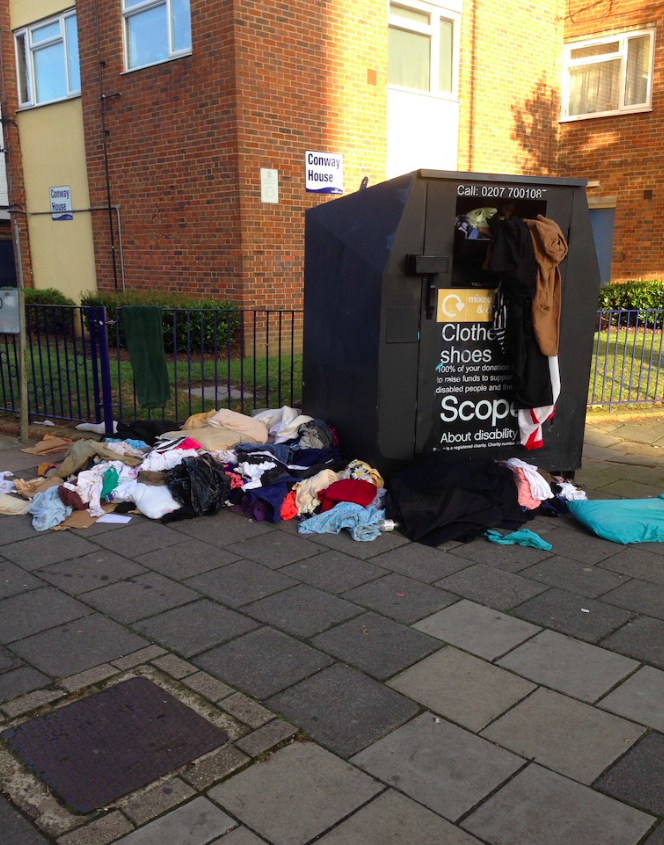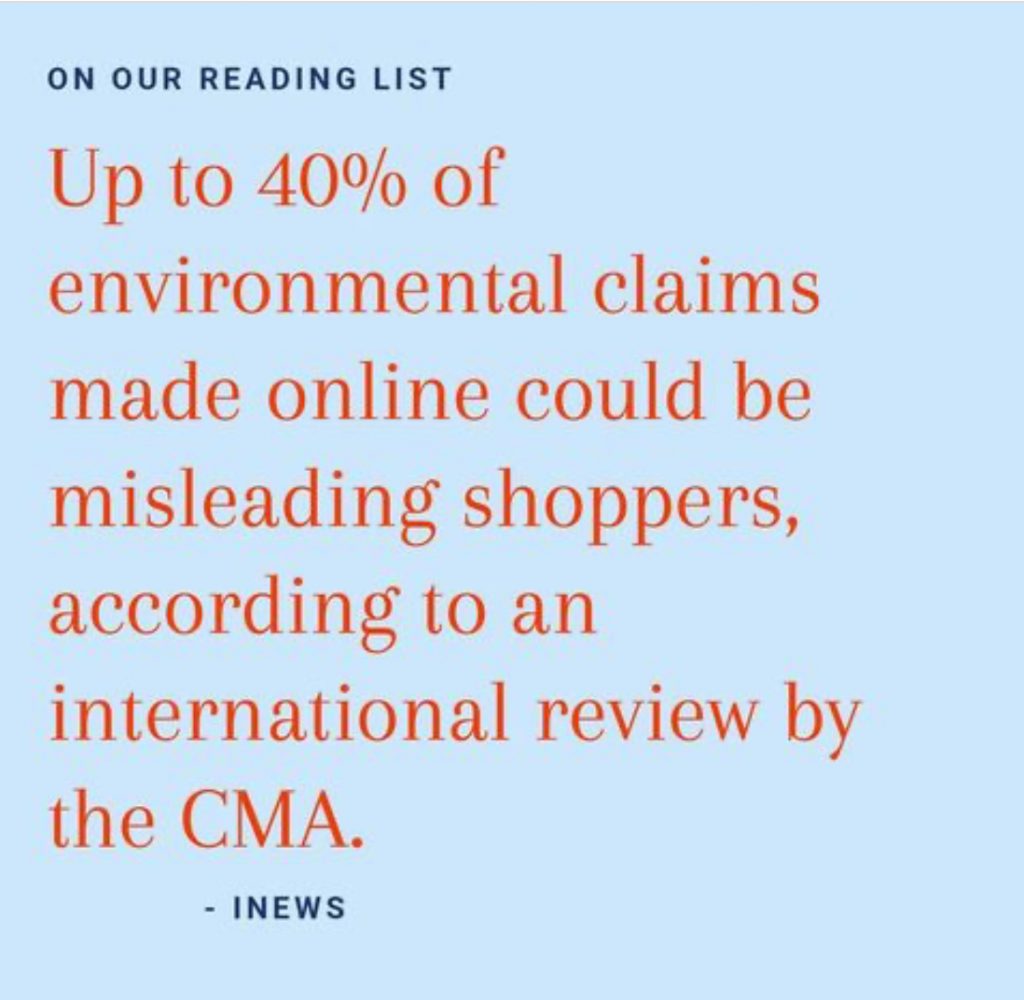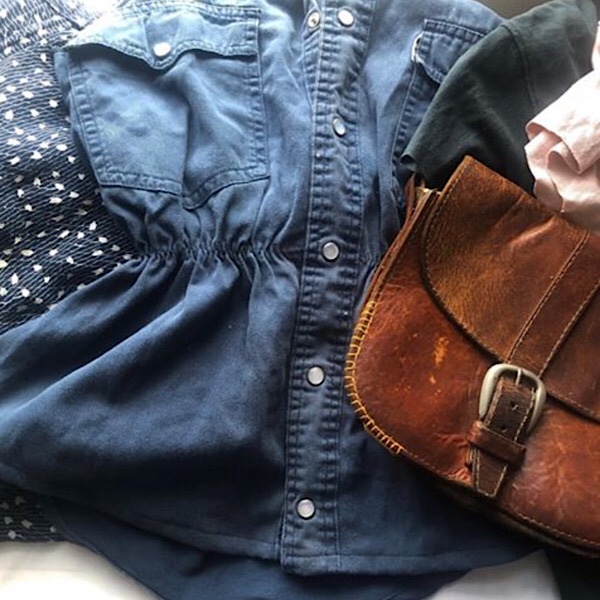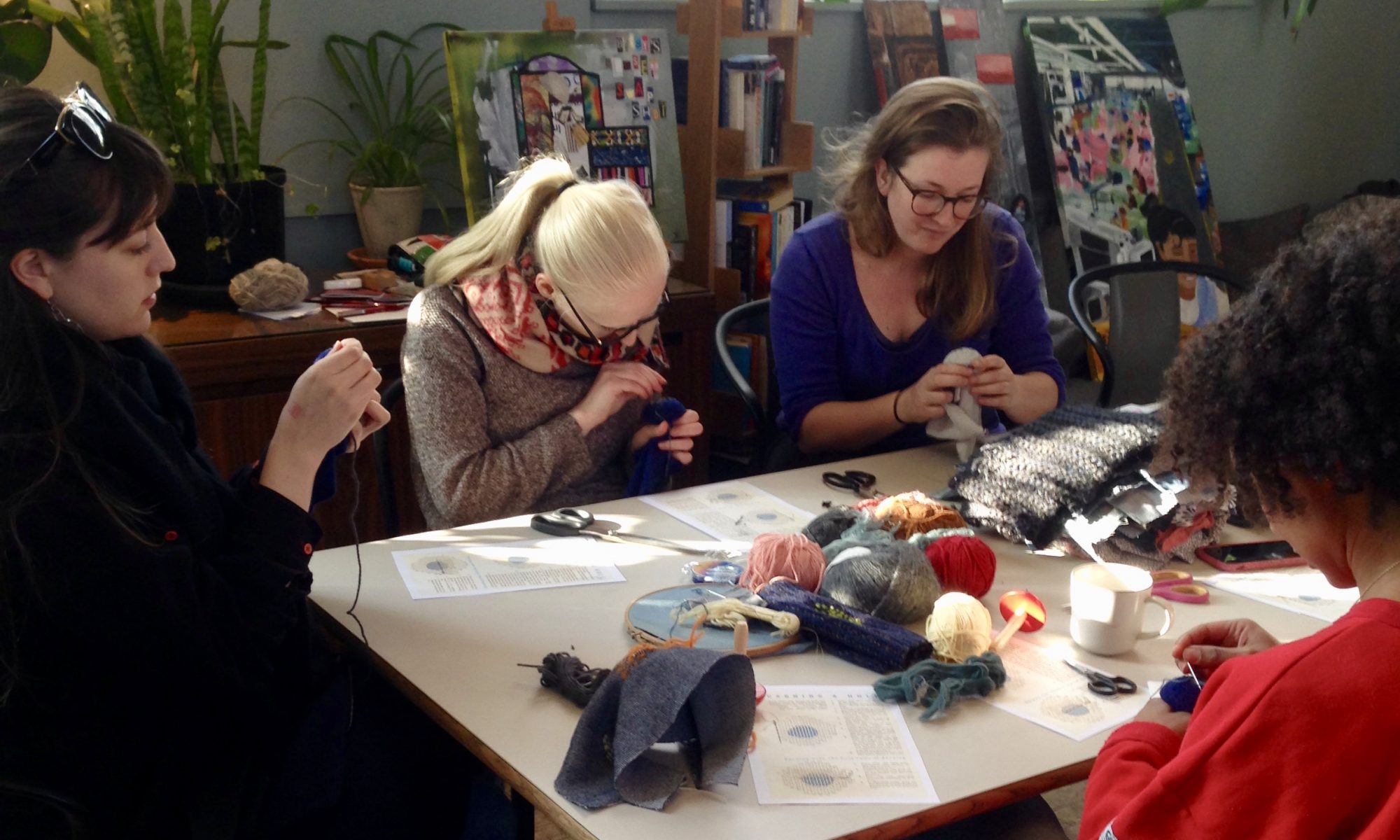
‘A mountain of used goods is building up in the north-east of England as one of the biggest exporters of second-hand clothing to the EU has suffered a breakdown in trade caused by Brexit. ‘ The Guardian reported this week. The article goes on to explain that ECS Textiles send 100 tonnes of second-hand clothes, toys, furniture etc. to eastern Europe for resale each week. The goods are currently held in customs due to confusion and paperwork because of new rules after Brexit.
The charities are the ones losing out as thousands of pounds are usually raised through the resale of these goods. Of course this is concerning. However my overall reaction to the article is why is a large re-seller of goods at full capacity after just one month? It highlights the shocking overconsumption problem that we have in the UK. We only keep our clothing for an average of 3.3 years (Loved Clothes Last, Fashion Revolution). If one recycle business has 100 tonnes of second-hand products to sell on each week, it seems keeping an item of clothing for 3.3 years is hugely overestimated.
The same day I read the article my friend posts on a group chat asking for shopping advice as she is fed up of wearing leggings every day but hates internet shopping. Another friend advises her to order lots of things, try them all on and send back what she doesn’t like or doesn’t fit. My friends were blissfully unaware of what happens to an item of clothing when it is returned as I think most online shoppers are.
According to Good Housekeeping magazine ‘less than half of returns go back on sale, as it’s cheaper and less hassle for retailers to send them to an incinerator or landfill.’ Clothes are being produced so cheaply that it is more effort and expense to re-sort returned clothing for resale than it is to just throw it away.
With ASOS buying Topshop, Topman and Miss Selfridge brands from Arcadia this week, online shopping will increase in volume, inline with the returns waste. ASOS are aware of the issue. On their website they claim ‘During the performance year 2018/2019, emissions generated by customer returns made up 12% of our total footprint at 31,586 tonnes CO2e. This was a slight increase (4%) on the previous year. ‘ If the returns were up 4% in 2019, I dread to think what the returns number is for 2020. They have some projects in place to reduce the returns but they do not mention the amount of goods that are incinerated. ASOS only talk about the sustainable projects they are working on. They don’t mention what percentage these are on their overall supply chain. Only talking about the sustainable projects and not the negative effect of clothes production on the environment is known as Greenwashing. Find out how to identify companies that use this technique on our previous blog post.

Fast Fashion Therapy was created to help people love their clothes for longer. To repair them, refashion them and reduce the need to always buy new. This results in fewer clothes reaching landfill. As consumers, if we buy less, retailers will eventually produce less. Resulting in a reduction in the damaging effects of clothing production on the environment.
5 ways to help reduce fast fashion and textile waste:

- Identify which values are the most important to you when buying clothes and research the stores that match your values e.g. fair rights for workers, recycled fabrics, chemical-free dyes, organic fibres, a recycled clothes campaign.
- can you find what you are looking for second hand in online market places, online charity shops, swishing events and vintage fairs (find many of these are selling on Instagram whilst we are in lockdown).
- Buy clothes made from organic and recycled fibres where possible
- Buy quality garments that will last longer and are easier to resell when you are finished with them. Donate clean, quality items to charity shops.
- Repair damaged clothes rather than replace them or remodel them to make them fit better or a style you prefer.
Want to find out more? Join one of our online workshops or our monthly clothes mending social.

